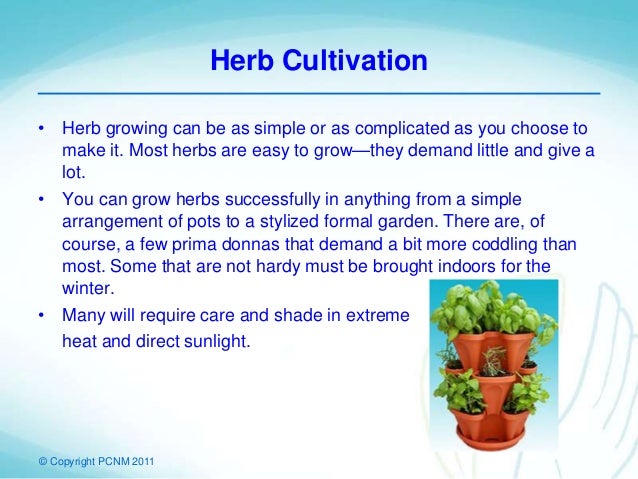Grow Herbs Indoors Year-Round: Top Tips

Imagine having fresh herbs at your fingertips, no matter the season. Indoor herb gardening is not just a hobby; it's a lifestyle that brings the outdoors in, enhancing your culinary adventures and adding a touch of nature to your home. Whether you're a seasoned gardener or a novice, growing herbs indoors year-round is easier than you think. Let's dive into the top tips for successful herb cultivation, ensuring your indoor garden thrives all year long.
Why Grow Herbs Indoors?
Growing herbs indoors offers numerous benefits. Not only do you have access to fresh, organic herbs anytime, but you also enhance your indoor air quality. Plus, indoor herb gardening is a therapeutic activity that can reduce stress and bring a sense of accomplishment.
Essential Tips for Growing Herbs Indoors Year-Round
Choose the Right Herbs
Not all herbs are created equal when it comes to indoor cultivation. Some herbs thrive indoors, while others prefer the great outdoors. Herbs like basil, parsley, chives, and mint are excellent choices for indoor herb gardening. These herbs are relatively easy to grow and require minimal maintenance.
Select the Perfect Container
The right container can make or break your indoor herb garden. Opt for pots with drainage holes to prevent waterlogging, which can lead to root rot. Terracotta pots are a popular choice due to their porous nature, allowing for better air circulation. However, plastic and ceramic pots also work well, as long as they have adequate drainage.
Light: The Key to Success
Herbs need plenty of light to grow. Place your herb pots near a south-facing window for optimal sunlight exposure. If natural light is scarce, consider using grow lights to supplement. LED grow lights are energy-efficient and provide the right spectrum of light for herb cultivation.
Water Wisely
Overwatering is a common mistake in indoor plant care. Herbs generally prefer well-drained soil and require watering only when the top inch of soil feels dry. Use a watering can with a narrow spout to avoid overwatering and ensure the water reaches the roots.
Maintain Ideal Temperature and Humidity
Herbs thrive in temperatures between 65°F and 75°F (18°C to 24°C). Avoid placing your herb pots near heat sources or drafty areas. Maintaining the right humidity is also crucial. You can increase humidity by placing a tray of water near your herbs or using a humidifier.
Fertilize for Optimal Growth
Herbs benefit from regular fertilization. Use a balanced, water-soluble fertilizer every 4-6 weeks to provide essential nutrients. Alternatively, you can use organic fertilizers like compost tea or fish emulsion for a more natural approach.
Prune for Healthier Plants
Regular pruning encourages bushier growth and prevents your herbs from becoming leggy. Pinch off the top growth of your herbs to promote side shoots. This not only keeps your plants healthy but also provides you with fresh herbs for cooking.
Monitor for Pests and Diseases
Indoor herb gardens are not immune to pests and diseases. Regularly inspect your plants for signs of infestation or illness. Common pests include aphids, spider mites, and whiteflies. Use organic pesticides or insecticidal soap to control pests without harming your herbs.
Advanced Herb Growing Techniques
Hydroponic Herb Gardening
Hydroponics is a soil-less method of growing plants using nutrient-rich water. This technique is gaining popularity for indoor herb gardening due to its efficiency and ease of use. Hydroponic systems can be purchased or built at home, providing a sustainable way to grow herbs year-round.
Vertical Gardening
Vertical gardening is a space-saving solution for small apartments or homes. By growing herbs on walls or using vertical planters, you can maximize your indoor space while creating a visually appealing herb garden. Vertical gardens also improve air circulation and light exposure for your herbs.
Companion Planting
Companion planting involves growing different herbs together to benefit each other. For example, basil and tomatoes are often grown together because basil repels pests that harm tomatoes. Similarly, chives and mint can deter aphids and other pests from your herb garden.
Conclusion
Growing herbs indoors year-round is a rewarding experience that brings nature into your home. By following these top tips, you can create a thriving indoor herb garden that provides fresh herbs all year long. From choosing the right herbs to maintaining ideal conditions, every step contributes to the success of your herb cultivation.
So, why not start your indoor herb garden today? With a little care and attention, you'll be enjoying fresh, homegrown herbs in no time. Happy gardening!
FAQs
1. What are the best herbs to grow indoors?
Some of the best herbs to grow indoors include basil, parsley, chives, mint, and rosemary. These herbs are relatively easy to care for and thrive in indoor conditions.
2. How much light do indoor herbs need?
Indoor herbs generally need at least 6-8 hours of sunlight per day. Place your herb pots near a south-facing window for optimal light exposure. If natural light is limited, consider using grow lights to supplement.
3. How often should I water my indoor herbs?
Water your indoor herbs when the top inch of soil feels dry. Overwatering is a common mistake, so ensure your pots have adequate drainage to prevent waterlogging.
4. Can I grow herbs hydroponically?
Yes, hydroponics is a popular method for growing herbs indoors. Hydroponic systems provide nutrient-rich water to the roots of the plants, promoting healthy growth without the need for soil.
5. How can I control pests in my indoor herb garden?
Regularly inspect your herbs for signs of pests. Use organic pesticides or insecticidal soap to control pests without harming your herbs. Companion planting can also help deter pests naturally.


0 Response to "Grow Herbs Indoors Year-Round: Top Tips"
Post a Comment